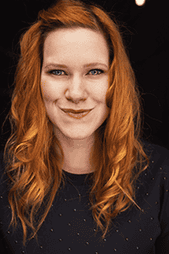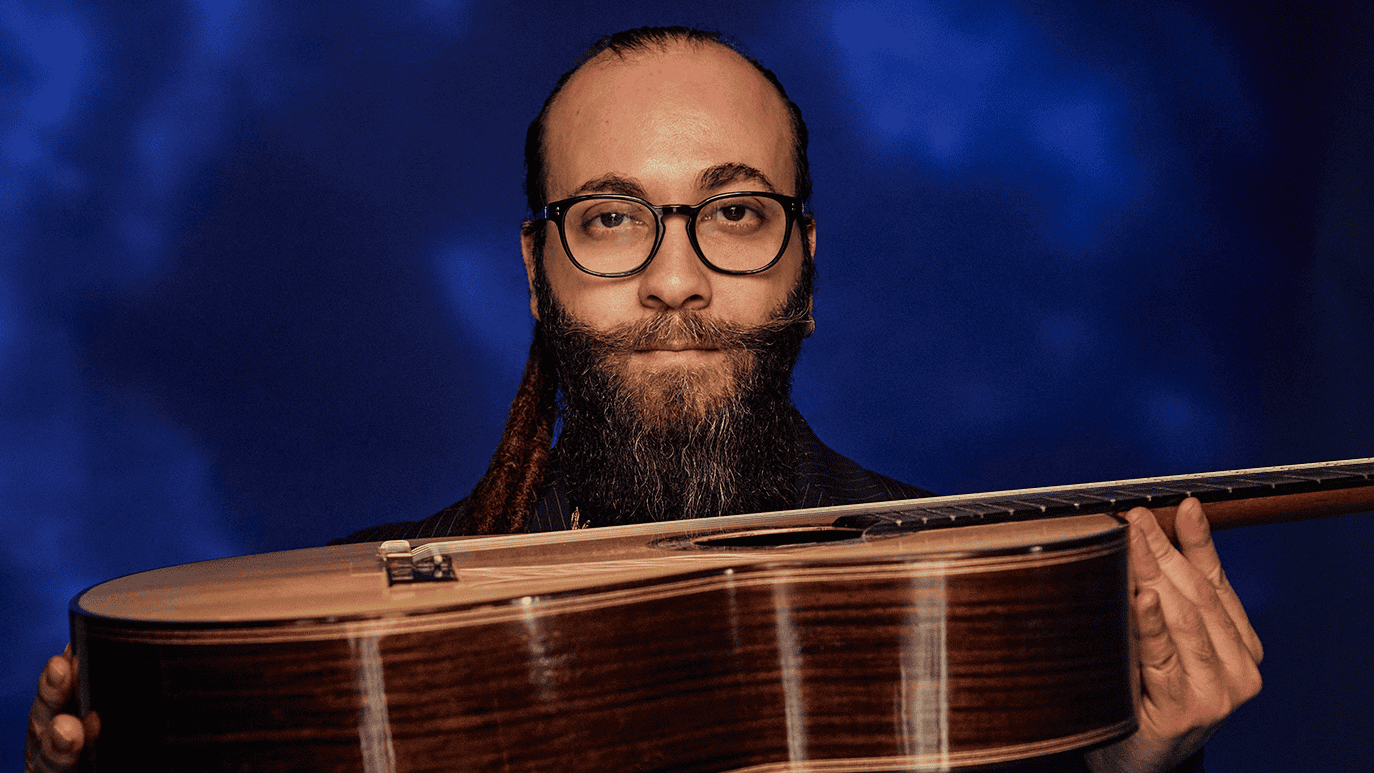A beautiful musical journey with a powerful message on board
In the vibrant mosaic of Toronto’s music scene, flamenco guitarist Tarek Ghriri emerges as a luminary, weaving a rich tapestry of sound that transcends borders and languages. With a story as compelling as the music he creates, Ghriri has spent two decades navigating the realms of melody, harmony, and rhythm. His album “Refugee in the Sea”, a culmination of years marred by conflict and displacement, stands as a testament to the power of music as a medium of storytelling and a bridge between disparate worlds. This sonic voyage not only illustrates a painful odyssey but also celebrates the universal language of music, blending flamenco’s fiery passion with the intricate melodies of Arabic and Indian traditions full of soul. In our conversation, Tarek Ghriri, who has just been nominated for the Canadian Folk Music Awards, offers an intimate glimpse into his artistic process, the challenges he’s overcome, and the boundless potential of music to instigate change and foster connection among the younger generations.
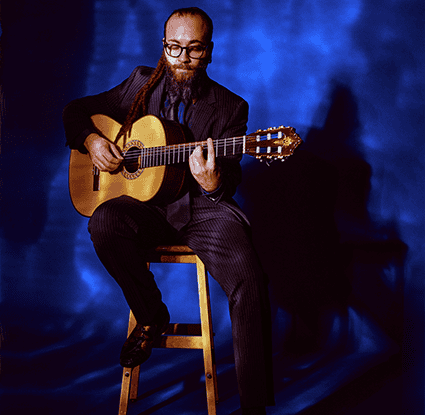
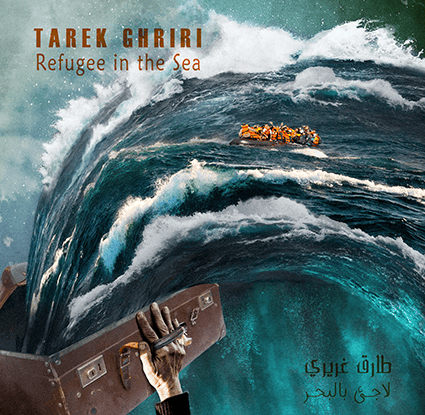
Your first album “Refugees in the Sea”, which came out in April 2023, weaves a musical tapestry through various cultures and languages. What inspired this creation?
Tarek: As we all know, what’s been happening in Syria is still going on today. And it’s a huge inspiration for many artists trying to express it. I left Syria at the end of 2013 and went to Lebanon which was also challenging. I faced a lot of racism, so it was a very bad time for me, lasting four years. I wasn’t ready back then to make this album. But the stories we kept hearing, needed to be shared – because we should talk about it somehow, right? Even if it is painful. Music is my weapon to speak about this conflict. When I arrived in Canada, I was also inspired by the many cultures here. I took my time and tried my best to compose, to have ideas and connect music from different places until I had a full concept. That took another three years so you could say all together it took seven to eight years from the first idea to finally finishing it. I received funding from Canada Council for the Arts and Ontario Art council, which was really helpful in order to put it all together – and to release it to a wider audience.
The album’s diverse styles span across the Middle East to Spain and India. How did these different sounds come together?
Tarek: As a flamenco guitarist with an Arabic heritage, blending these two styles came naturally to me. Flamenco and Arabic music share many similarities – the same scales are used. So that was easy to mix. At the same time, the way of singing, the way of expressing, is pretty close. Through the gypsies the music travelled from India to Spain. I tried to encapsulate that musical journey in my album. It’s a journey of peace and you can feel that there is not a big difference between us all. Maybe the languages are different, as they are in the songs, but the music is not.
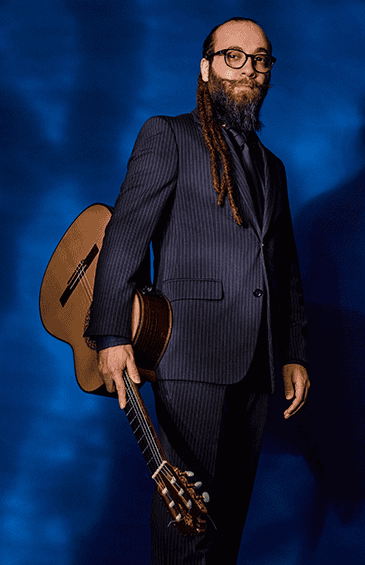
Is there a particular track of your album that’s closest to your heart?
Tarek: Every song is different because they each tell a different story and ideas. I don’t think I have a favourite, but the title song “Refugee in the Sea” touches me deeply every time I listen to it. Even though it’s been four years, I don’t get bored of it. I can always connect to the feeling. It tells the story of people who take those ‘death boats’ because they are looking for their freedom. Of course, they know the risks of the boats, but they don’t care because they are looking for a better life. When I listen to this song, I feel that story and that sadness. Another favourite is “Color of Passion,” which expresses the journey from India to Spain and how peace is carried along with the travellers. A lot of listeners also like “Dreams from Home” where I mixed Arabic lyrics with Spanish ones. It also features the Arabic instrument Oud and the energy of the song increases which I think many people like.
What has the response to your music been like so far?
Tarek: The response has been overwhelmingly positive, and particularly the mixing of languages and musical styles seems to resonate. And, of course, the story! Which was also something I was afraid of… That if people don’t like the music, it won’t reach many, and that would mean the story wouldn’t be heard either. And I’m speaking about a huge message. It’s been going on for 13 years now, the situation in Syria. So, I was very worried that if the music did not land, the message wouldn’t reach anybody. But every time I contacted the media, they replied quickly because they liked the music as well as the concept. That’s been really nice. I’ve also been nominated for the Canadian Folk Music Awards, one of the most important music awards here, which is incredibly validating – and I’ll find out next month about it.
Let’s talk about your musical roots. How did you become a flamenco guitarist?
Tarek: Flamenco is a pretty difficult type of music, and it takes many years to master it so like most guitarists, I started with classical guitar and moved to flamenco after three years. I was thirteen when I saw someone play the guitar on TV which sparked my interest. So, I saved some money, bought my first guitar and went to music school for three months. And I haven’t stopped playing since… I just couldn’t let it go. I don’t know how to do anything else, only music – and I’m happy about that!
Is there another instrument that you would like to try?
Tarek: I do play the fretless guitar, which sounds like something between an oud and a sitar. It’s a pretty unique sound and allows me to incorporate Arabic microtones into my music. I’m currently focused on an EP just with the fretless guitar.
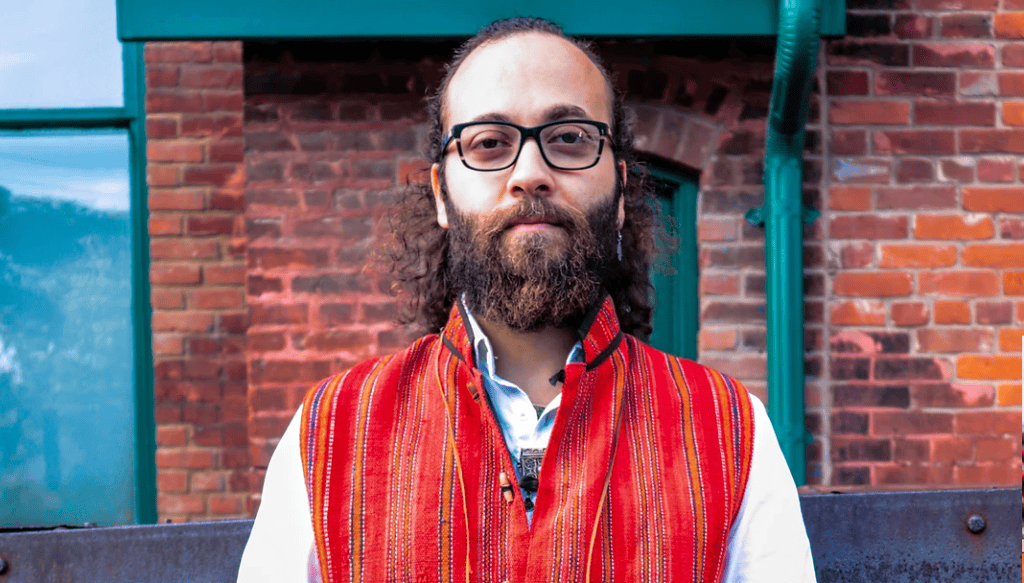
You use music as a vehicle for social change, especially through your connective ‘Music from Hope’. Can you tell us more about that?
Tarek: Along with my partner and fellow artist Nour KDN, who’s also the producer and percussion designer of my album, we created ‘Music from Hope’. Nour started doing workshops in Syria and when she joined me in Lebanon in 2015, we continued together. When we moved to Canada, we kept going and now we do 30-40 workshops a year. They are especially good for newcomers, kids who just landed here. Within the first two weeks of them arriving, we go to the shelters, and we do a bit of music therapy through musical games. We don’t teach music. It’s about giving the kids a sense of belonging and safety, and help them express themselves. That’s how we try to give back to the community. And it’s not just for Syrian or Arabic kids. We work with many communities from Ukrainian to African, and we don’t care about anyone’s background. We always try to mix everyone together, so they can collaborate. Kids don’t care where people come from, and we encourage that.
What do you think it is about music, that allows for these connections to happen fairly quickly between the kids?
Tarek: Music is not something you touch, it’s something you feel. So, when you give an instrument to anyone, they start to play. Doesn’t matter if you know how. You just play. You express yourself, releasing something. The kids start to create, they start to put something together. Without pushing, the music allows them to release emotions. Even if you are in your car, and you listen to the radio, music does something to you, right? It’s magical. We always feel happy after the third workshop with a group because that’s when you can see a shift happening. You see how talented the kids are! And particularly when someone is very shy, and you witness them opening up through music – it’s amazing. Of course, I wasn’t a child when I came to Canada, but I still feel what they feel. It’s therapy for the kids, but Nour and I always say, it’s also therapy for us.
We cannot wait to hear where Tarek’s musical journey takes him next!
To listen to ‘Refugees in the Sea’ click here
To check out Tarek further (and make sure to subscribe to his newsletter) click here
To follow him on Instagram here
Interview by Mari Stracke
